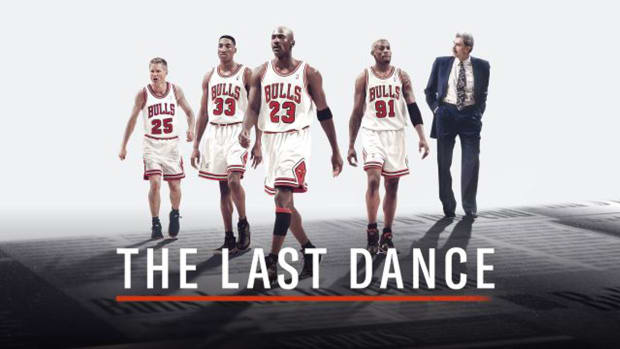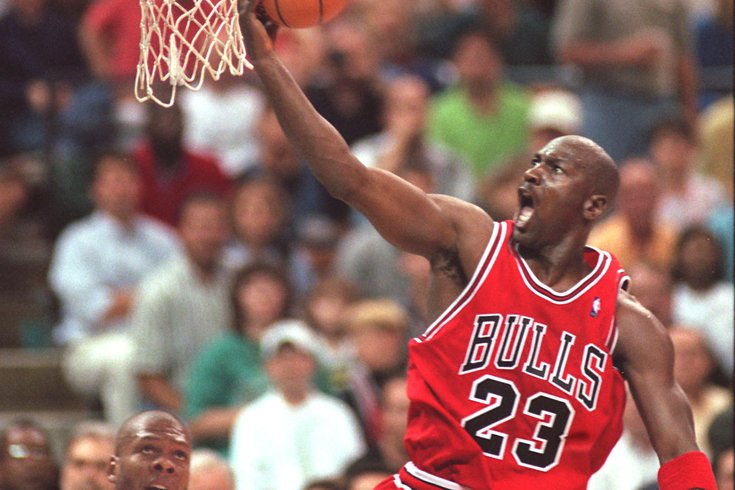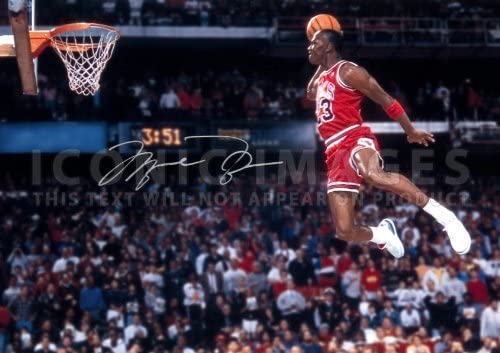
Sunday night, a week ago, finished up The Last Dance series on ESPN, a documentary covering the 1997-98 season of the NBA’s Chicago Bulls. That was the last of the six championship seasons for Michael Jordan and the Bulls. Management decided before the season that it would be coach Phil Jackson’s final season and that they would dismantle and rebuild after that season. So, in an effort to unify and motivate his players for one final run at an NBA title, Phil dubbed the season The Last Dance, which was an ingenious way of creating a very effective us-against-them mindset, even if – or, especially if – the them was the Bulls front office.
The series was really good. No real surprises for me, though. I’m five months older than Michael Jordan, a third generation Tarheel basketball fan, and an NBA fan since I was eight years old. I’ve followed Michael closely from the first time he wore a Dean Smith uniform and saw every game of his pro career that I could possibly watch, even in the nineties, when we had anywhere from one to three at a time in diapers, my wife and me working full-time, and both of us super-involved in church ministry. So I knew very well Michael’s fierce-competitor, do-whatever-to-win approach to the game, along with his superhuman athleticism and unstoppable skill set. And make no mistake, while other prominent figures – like Phil, Scottie, Kraus and Rodman – were duly featured, The Last Dance spotlight shone warmly where it belonged – on Michael. I count it a privilege to have witnessed MJ play through his entire career, and I’ve honestly thanked God for scheduling my time on earth to correlate with Michael’s. Aside from the beauty of his airness’ artistry of scoring so acrobatically against multiple defenders and the poetry he wrote with his game-winning heroics, he was a perfect model of talent meets determination meets work ethic for anyone from any walk of life. Someone said in the series You could argue that Michael Jordan was better at his job than anyone has ever been at their job. I agree, with the single exception of Jesus Christ, who is the exception to an undeterminable number of otherwise strong best-ever arguments.
Speaking of Jesus, please read what He said, as recorded in the book of Luke (I added the emphasis on what is the main point of His lesson):
“There was a certain rich man who had a steward, and an accusation was brought to him that this man was wasting his goods. 2 So he called him and said to him, ‘What is this I hear about you? Give an account of your stewardship, for you can no longer be steward.’
3 “Then the steward said within himself, ‘What shall I do? For my master is taking the stewardship away from me. I cannot dig; I am ashamed to beg. 4 I have resolved what to do, that when I am put out of the stewardship, they may receive me into their houses.’
5 “So he called every one of his master’s debtors to him, and said to the first, ‘How much do you owe my master?’ 6 And he said, ‘A hundred measures of oil.’ So he said to him, ‘Take your bill, and sit down quickly and write fifty.’ 7 Then he said to another, ‘And how much do you owe?’ So he said, ‘A hundred measures of wheat.’ And he said to him, ‘Take your bill, and write eighty.’ 8 So the master commended the unjust steward because he had dealt shrewdly. For the sons of this world are more shrewd in their generation than the sons of light.
This is the most difficult to understand of all Jesus’ thirty parables. But it helps to realize that He used a negative model for a positive application. The negative is that the steward used his shrewdness to steal from his master once he learned it was, for his stewardship, the last dance. The positive application is that we should be so shrewd in making life-after-stewardship-preparations for ourselves (life on earth being our stewardship era, and the preparations being giving ourselves completely to serving God and people). After all, life being a vapor, our gig could be up at any time. We could be in our very own last dance.
Jesus’ point is that we can learn lessons from people who are successful in worldly pursuits, and we can apply those lessons to our pursuits in His Kingdom.
Dishonest Steward’s Model: He stole from his master and gave what he’d stolen to his master’s debtors, so they would be kind to him after he lost his position as steward.
Our Takeaway: Be generous with the resources available to us in this life; by doing so, we are making an investment in eternity and our return on investment will be exponentially favorable.
Not Our Takeaway: Obviously, Jesus isn’t encouraging us to ever be dishonest in our dealings. Nor is He suggesting that we ever steal from anyone.
And here are some lessons we can take from Michael Jordan, the greatest of all time (GOAT) in basketball history.

GOAT’s Model: MJ used anything he could find to boost his motivation to dominate his opponents. For example, Karl Malone, of the Utah Jazz was league MVP one year, and Jordan took offense to that, wanting to prove in the championship series against Utah that year that Jordan was the better player who would lead his team to the championship over Malone’s team.
Our Takeaway: Any time our enemy (ungodliness) enjoys some success, we can use that as added motivation to serve and glorify God with great intensity and determination.
Not Our Takeaway: We never want to use another person’s success as motivation to better them. That’s covetousness. As followers of Christ, we can’t find motivation in just anything. Our top priority is to guard our hearts. A pure heart is more important to us than accomplishments superior to another person’s.
GOAT’s Model: It’s well documented that Michael raised his teammates’ level of play by challenging them in team practices, to the point of bullying them.
Our Takeaway: We should look for opportunities to encourage our brothers and sisters in Christ in their faith. We all need each other’s help. We’re all members of the Body of Christ and we should proactively help the body by helping a member.
Not Our Takeaway: A domineering approach to motivating someone is not Christlike. Concerning how to become a great leader, Jesus told his disciples, “Whoever desires to become great among you, let him be your servant.” There we go… servant leadership is the style God wants for us.
GOAT’s Model: Michael was single-minded in his pursuit of winning championships and wanted to win at all costs.
Our Takeaway: How awesome it would be if we were so single-minded about bringing glory to God and about helping people come to know Him as their Savior, Lord and King.
Not Our Takeaway: While we are called to deny ourselves and take up our cross to follow Christ, we need to decide that offending others by being unkind to them isn’t a cost we’re willing to pay.
What would my life (and my and others’ eternities) look like if I were as single-minded and all-in concerning the objectives God has called me to as Michael was concerning his objectives? Again, thank You, God, for providing for me such a model as Michael Jordan. Please help me to apply those lessons to my life in Your Kingdom!


I have always struggled with that parable, so I appreciate the way you explained it so well! Thanks for that insight!
Thank you Emily!
If only we could look at more people and say–here’s my takeaway and here’s what I won’t take away.
That’s a much-needed insight for today.